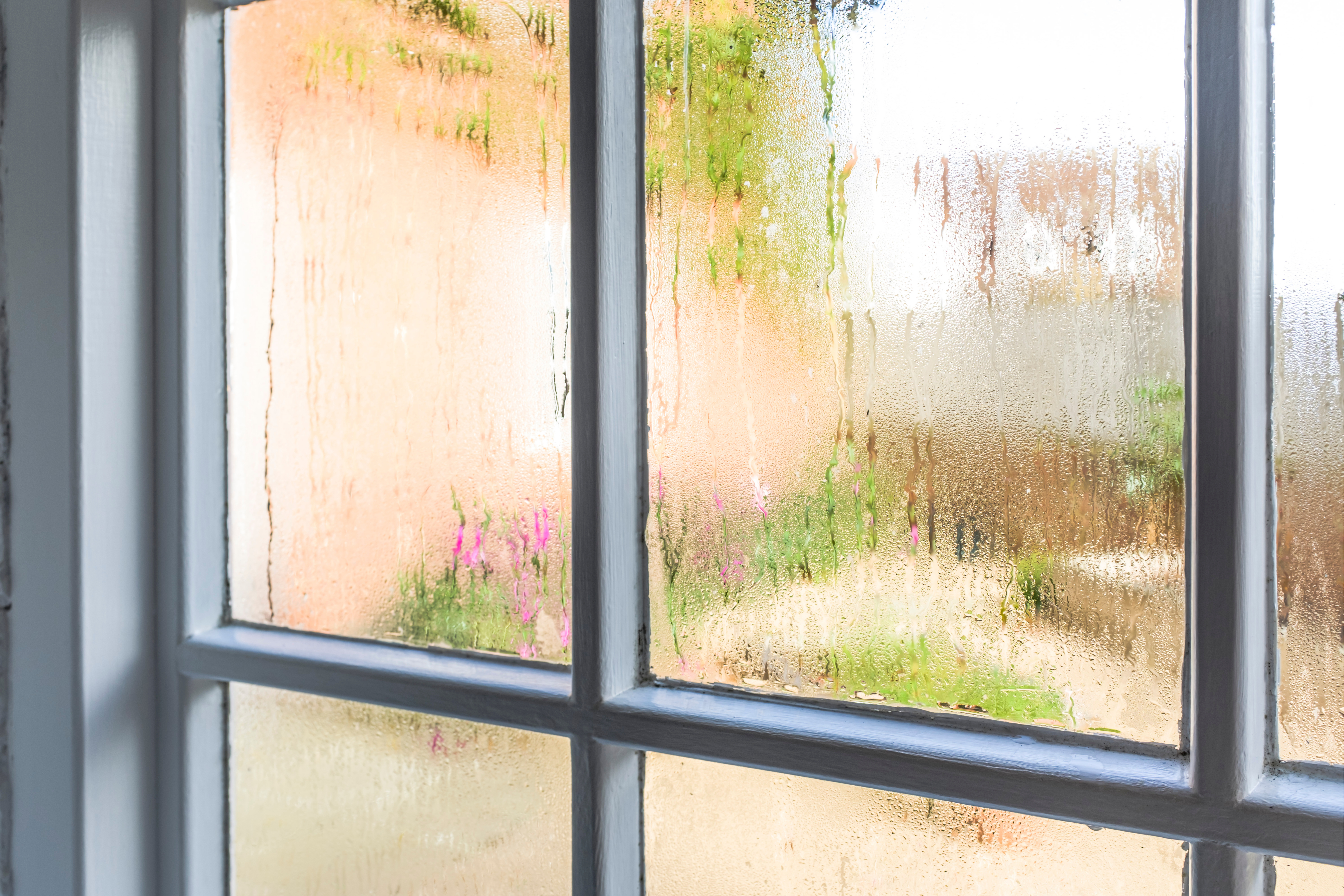Although condensation may seem like a cause for concern, finding condensation on the inside of your windows means they are performing as they should be. Condensation is extremely common and can occur even on brand new windows. For newly fitted windows, it’s a sign that your windows are working to keep your home energy efficient by reducing draughts from entering and heat from escaping.
Whilst condensation on the inside of your window is completely normal, an extreme amount of condensation is something to avoid. Over time, frequent or significant amounts of condensation can result in damaged window frames, wet window ledges, and excessive amounts of moisture in your home.
Understanding Condensation on the Inside of Windows
One of the many benefits of double glazing is its ability to retain the heat in your home by preventing warm air from escaping. However, condensation forms when moisture from the air inside your home encounters the cold surface of the window, which it cannot pass through.
It is inevitable for moisture to naturally enter your home, as daily activities like cooking, taking warm showers, and drying clothes can contribute to added water vapour in the air. However, when the air's moisture meets a cold and impermeable surface like a window, this moisture is released onto the glass as droplets of water, otherwise known as condensation.

Where In The Home Does Condensation Occur?
Condensation is likely to occur throughout your home. However, you may notice that some rooms are more prone to it, such as the kitchen, bathroom, and utility room.
As mentioned above, excess moisture is unable to pass through the cold surface of your window. Therefore cooking, showering, and drying clothes will result in condensation in rooms where these activities occur.
Condensation can also appear in your bedroom, as whilst you sleep for around 8 hours during the night, a significant amount of water vapour is released into the air through your breath.
Furthermore, as most people opt to turn off their heating during the night, the surface of their bedroom windows will be cooler. This causes the warm moisture in the air to condense into water as it meets the cold window, resulting in condensation.
Why Is Condensation Bad?
Over time, too much condensation can be detrimental to your home and health. Its presence can encourage the growth of mould and mildew, which can damage the window frame and lead to costly renovations, as well as breathing difficulties or other health concerns.
Steps To Reduce And Prevent Condensation?
To reduce the condensation in your home, there are a few simple steps that you can take.

Ensure proper ventilation in your home.
Whilst you are cooking or showering, using an extractor fan is an excellent way to reduce and remove the damp air in your room before it settles on the cool surface of your window.
Ventilate your rooms.
It is recommended to open your windows for 20 minutes daily, even during the winter, to improve ventilation, as this will allow the damp air to escape. If you don’t want to open the windows, drawing open your blinds and curtains can still help. When your blinds or curtains are shut, this can trap the moisture in your room in proximity to the window's cold surface. Therefore, keeping your blinds open can help to improve ventilation.
Avoid drying laundry inside.
Drying wet clothes inside can lead to increased amounts of moisture in the air. Instead, try to air dry laundry outside if possible. However, if you cannot do this, ensure that the area around your laundry is well ventilated.
Reduce the plants in your home.
House plants can contribute to excessive moisture in your home. Therefore, consider moving them outside or opting for plants that absorb humidity like ferns, cacti, or palms in the winter months.
Invest in a dehumidifier.
Dehumidifiers are a worthy investment to reduce condensation in your home. They are specifically designed to extract excess water vapour from the air and can be moved from room to room, unlike extractor fans.

Why Is There a Sudden Increase in Condensation?
If you notice a sudden increase in condensation, this can most likely be owed to a few short-term factors.
For example, in winter, as during these months, the temperature within your home is substantially warmer compared to outside. This can cause your windows to cool and encourage water vapour to condense on the glass.
If you have recently installed new windows, you may notice more condensation on your new double glazed windows than usual. The airtight seal on newly installed double glazing works well to retain heat in your home effectively. However, it may also inadvertently contribute to reducing ventilation and lead to condensation.
After installing underfloor heating, condensation may appear to increase. Traditional radiators encourage warm air to circulate a room, so when replaced with underfloor heating, the warm air rises evenly, creating a humid atmosphere.

What About Condensation Between Double Glazing?
Although condensation on the inside of a widow can be manageable and preventable, its presence between double glazing panes can be a significant issue. If this is the case, there is likely a fault in the seal of your window unit, allowing unwanted water vapour to enter and reducing the thermal efficiency of your home’s windows. When this happens, we recommend replacing your windows to ensure that your home can effectively retain heat once more. You can find out more about Jewel's range of double glazed windows here. Prepare your home for the colder season by getting in touch with Jewel today! Spring and summer are the best time to stop condensation on double-glazed windows in winter and upgrade!


